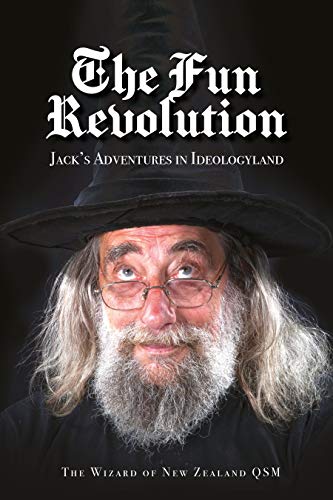HISTORY AS CULTURAL PATTERNS
All cultural events of mankind are regarded as materialisations in space-time: events such as schools of sculpture, music, philosophy, sacred and profane literature, architecture and science, (but not social, biological or material events).
These are evaluated by the historians according to purely aesthetic criteria. The assumption is made that the relevant data for their studies are the cultural achievements of great personalities as recorded by up-to-date encyclopaedias of a good reputation in the intellectual community.
The historian collects as much data as possible. He attempts to avoid that the cultural bias that he feels characterises the previous schools of “history as progress”. This done by proceeding to treat the data statistically by shuffling it in various ways until some sort of pattern emerges. This inductive technique is mistakenly called scientific method and then hypothesised to be an absolute and not merely another relativistic pattern of man’s culture, like art and religion. This school is therefore as absurd as any other which assumes history to be “a good thing” and evidence of superiority over the primitives who have no real history.
This school has its origins with certain Roman historians who also regarded history as an arrangement of recorded achievements by great men. This voyeuristic attitude is to be expected from the culture which invented art galleries and museums. During the Renaissance the humanists in the anti-papal mercantile city states of Europe revived this humanistic form of history.
The most significant contributions to this openly anti-religious school in the past century have been made by Vico, Weber, Spengler, Sorokin, Toynbee, and Kroeber, whose “Configurations of Cultural Growth” is probably the purest case of this genre.
HISTORY AS PROGRESS – ECONOMIC PROGRESS
All socio-economic events in time and space are evaluated according to a progressive or evolutionary theme based on the assumption that increased material wealth or “prosperity” means the same thing as increased chances of survival and is an absolute good.
The bourgeois merchants who supported the Enlightenment regarded the religious restrictions on usury, etc, as a great hindrance to their philosophy of life and identified with the romantic humanistic tradition of the Renaissance, which was strongly anti-theocratic.
This tradition culminated in the Socialist or Communist philosophy of history of Karl Marx, which replaced the Capitalist philosophy of history pioneered by Adam Smith (guidance by the “invisible hand” of greed). This replacement was achieved through the Marxists’ legitimation of mob violence of an eschatological type (The Revolution as Historical Necessity) to achieve their end of economic progress.
Of recent years both Socialist and Capitalist historians have been converging until their interpretations of events have become very much alike. The world-wide adoption of their viewpoint has almost completely destroyed monotheistic interpretations of history in the West, and polytheistic interpretations of history in the East.
In the wake of this removal of the dreaded theocrats, who were traditionally blamed for all disasters, comes news of the even more disastrous side effects of economic determinism, which could eliminate the human race in the immediate future in any number of ways.
The most likely at present being discussed are;
Pollution and the destruction of the complex biological ecosystem;
Starvation through population growth;
The exhaustion of energy supplies through waste cycles of production and consumption to promote more employment, more income and more shopping;
The massive arms trade, which has led to the rapid growth of massive, uncontrollable wars and revolutions;
The appearance of dictators ruling like divine beings through truth control maintained by commercial and/or party political control of mass media;
Biological, chemical, or atomic mass death through an accidental triggering of the immense stockpiles of weapons justified by emphasizing the continual state of emergency that is one of the anxiety raising techniques used to ensure peoples participation in the absolute good of hard work in both socialist and capitalist republican worker states.
As a result this school is at present anti-intellectual and is avoiding confrontation with other schools. However, since training schools for all historians are at present sponsored either by government-financed institutions or business-financed institutions, there is no shortage of economic progress historians ready to rationalise the policies of any state or business instrumentality pursuing economic progress as the absolute good to which all other values must be subservient.
HISTORY AS PROGRESS – TERRITORIAL EXPANSION
This school can be distinguished from the history as economic progress school, even though the two schools have certain things in common. International events are evaluated according to a progressive theme based on the assumption that increasing the size of one’s own “chosen people” through occupation of the territory of “unchosen people” for this purpose is the absolute good.
Collective action systematically devoted to this end at the expense of all others, through highly disciplined warfare, is authorised by a military overlord through the inspired writings of propagandists who follow political developments and authorise military leaders.
This school of history began in the late Bronze Age and early Iron Age with (among others) the Hittite, Egyptian, Babylonian and Israelite empires. The most influential of all was the Hellenistic Empire of Alexander, and the Roman Empire which inherited it’s territory and expanded it. This was in turn revived by the Caesaro-papists and soon afterwards Reformation Protestants used biblical re-interpretation to found their own independently-armed nation states. This semi-religious philosophy of history culminated in the British-Israelite school during the apogee of the British Empire.
This school of history which led to Nazism, Fascism and Soviet and Chinese Communism this century is being persecuted by both the anti-religious economic determinist school and the anti-religious scientific patterns of culture school. Very few of their writings are published and circulated except in very limited circles, since they are ridiculed in the schools, universities and mass media organisations in the capitalist states as dangerous fanaticism.
The Twentieth Century versions of this philosophy of history, have been crude and, with the exception of Zionism, short lived. The biggest setback for this school of history has probably been the destiny of the British peoples since the First World War. The British are the most notable of the “chosen peoples” who still adhere to rituals of community identity based on this assumption, culminating in the coronation of the head of state as Defender of The Faith.
Despite proving victorious in their numerous wars against the Roman Church (the Spanish Armada invasion attempt etc), the capitalist United States of Europe (the Napoleonic invasion attempt), and the German Third Reich socialistic superstate (the Nazi invasion attempt), they have nevertheless been reduced to the status of a small power. In particular, the loss of most of their religiously inspired Empire through the growth of materialism during their periods of weakness immediately following the end of the First and Second World Wars, and being overtaken as world leader by the USA has resulted in a massive loss of confidence in their religiously- inspired destiny as a people.
HISTORY AS FERTILITY MYTHS – POPULATION EXPANSION
All regional events, not only socio-cultural events such as changes in the government, wars, civil wars, but also biological events relating to fertility of man, beasts and plants, and even material events connected with the sun, moon and stars, are evaluated according to criteria emphasising that stability and fertility are an absolute good. These are regarded as due to the effects of the combined intentions of anthropomorphic deities of both sexes.
Identifying the particular deity responsible for a particular event and recommending suitable sacrifices to placate them, is the function of specialised priesthoods resident at specific holy places or shrines – usually communication and iriigation centres. Intense rivalry between different professional brotherhoods of priests, especially between those of the sun and moon and between copulatory and fertility cults, often leads to a static “cyclical” view of history.
This philosophy of history originated in the earliest Neolithic farming communities and is still found in the various forms of Hinduism and in a rather debased form in Roman and Greek Christianity.
HISTORY AS SYMPTOMS OF COSMOLOGICAL DISEASE
All events, socio-cultural, biological, zoological, meteorological and astrological, both macrocosmic and microcosmic, are believed to be parts of a complex interlocking karmic system or cosmos. Events are evaluated on the criterion that the growth of materialism and matriarchy are an absolute evil and the increase of ecstasy in the males and their freedom to explore, hunt, and indulge in trance-dancing, is the absolute good, rising above concern with food supplies, protection against the cold, avoidance of injury and sickness, human fertility, etc, which are evaluated as secondary good things.
The divination of which bad actions are associated with which bad reactions and the recommendation of which good actions will redress the cosmic balance, is the speciality of experts, the world’s oldest profession, known variously as witchdoctors, medicine men, shamans, sorcerers or wizards. The decision is made on the authority of the shaman himself, not in the name of any anthropomorphic deity, or metaphysical concept such as “the people” or “chance”. Failure to produce harmony in the “metaphysical ecosystem” is consequently assumed to be the falling of the unprotected shaman himself, who, unlike the priest, prophet, economist or scientist, cannot afford to make many false diagnoses and false prescriptions for cure as he has no-one to blame except himself.
This school of history goes back to at least 35,000 B.C. during the Upper Palaeolithic period but barely surviving animosity by armed agriculturalists, came to an end only in recent years with the forcible destruction of the last nomadic hunters by “progressive” capitalists and socialists and by anthropologists looking for culture patterns and collecting artefacts for their museums and art galleries.

